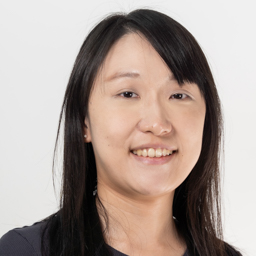'I was chased out of the house at 21 and 25': Julie Tan talks about relations with her mother


 PUBLISHED ONApril 21, 2023 6:45 AMByJolynn Chia
PUBLISHED ONApril 21, 2023 6:45 AMByJolynn ChiaOur relationship with our parents changes as we grow up.
Actress Julie Tan spoke to Yes 933 DJ Evelyn Tan on a recent podcast episode of H2H with Eve, which was also released on YouTube yesterday (April 20).
Among other topics, Julie shared about the reconciliation journey between her and her mother.
She shared forthcomingly in the interview: "When I was 21, my mum chased me out of the house. At 25, when I moved back, she chased me out again. Then, the next time I chose to move out on my own. In my twenties, I moved in and out for a total of three or four times."
Reiterating what she shared in 2021 on TikTok, the 30-year-old elaborated on how relations with her mum were fraught due to many reasons, among which is her mother's inability to regulate her own emotions. They even went through therapy together when Julie was seven to 12 years old, but stopped after that.
In her late teens, she blocked out her memories from childhood as they were unhappy. She also harmed herself on and off throughout her teens and twenties as a coping mechanism.
Fast forward to years later and Julie and her mother are on great terms now. Julie shared that they hang out more and enjoy spending time together, recently visiting an exhibition together.
How did they get here?
With years of therapy, Julie realised that the key to resolving their mother-daughter issues was empathy. She came to understand her mother's struggles more after she had a few failed relationships herself.
"I realised that when someone says they don't love me anymore, and I haven't yet learnt to love myself, it was a huge emotional hit. So I understood better why my mother wasn't able to control her emotions well back then," Julie elaborated.
In fact, she came to empathise with her mother so well that she stopped blaming her. She understood that as a woman, "we all want to be loved".
Julie said she told her mum: "I don't know if you believe me, but I love you, I don't hate you and I forgive you. I can't change my childhood, but we are able to create a more beautiful future."
However, just because she was ready to forgive and move on, it didn't mean her mother was necessarily on the same page.
Julie recalled her mother saying: "You're an actress so you're good at acting." The older woman secretly believed Julie would take revenge for her childhood trauma.
Julie understood her mother's sceptical response to be her defence mechanism. She added to Eve, she tried to reassure her mother by telling her that she had many unhappy years in her youth and just wanted to have a happier life now.
Things seemingly became worse before they improved.
There was a period in her late twenties when Julie moved out and they did not speak for eight months, only communicating through Julie's father.
The turning point came when Julie's mother had a fall and was admitted into a hospital.
"When I saw her lying on the hospital bed, I felt very sad. I felt guilty. I felt that if I had not abandoned her, the outcome might have been different," Julie shared in the podcast, attempting to hold back her tears.
It was then that Julie decided that she would not leave her mother again. The two reconciled soon after, with her mother apologising for the hurt she caused Julie.
Besides sharing that she could understand why her mother behaved the way she did in the past, Julie also assured her that she would be there for her. In the podcast, she recounted her words to her mother: "The love that you couldn't get from Dad, I hope you can get it from me."
Evelyn summarised it aptly with quotes from writer Wan Te Te's book The World is Good but You are Not Bad Either: "Not only are we kids for the first time, but our parents are usually parents for the first time…
"Most of them are just ordinary people with their own flaws. Rather than thinking about what our parents owe us, perhaps we can see that they helped us see ourselves more clearly."
No part of this story can be reproduced without permission from AsiaOne.
For more original AsiaOne articles, visit here.